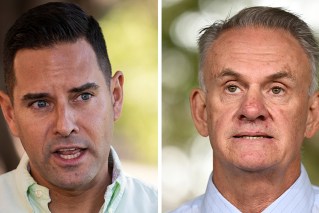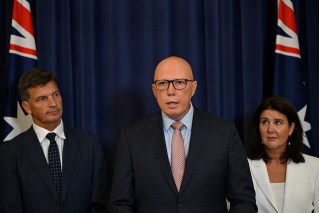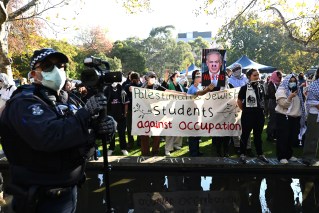Scott Morrison rejects findings he misled government during Robodebt inception

Former prime minister Scott Morrison has “rejected completely” findings that he misled Cabinet on the legality of the Robodebt scheme, following the release of the Royal Commission’s final report on Friday.
The report states that Mr Morrison, who was social services minister from May 2014 until September 2015, “allowed Cabinet to be misled” by not inquiring why the department ignored its own suggestion from 2015 that using an averaging of income required legislation to be introduced.
“He knew that the proposal still involved income averaging; only a few weeks previously he had been told of that caveat; nothing had changed in the proposal; and he had done nothing to ascertain why the caveat no longer applied,” the report said.
“He failed to meet his ministerial responsibility to ensure that Cabinet was properly informed about what the proposal actually entailed and to ensure that it was lawful.”
In a statement, Mr Morrison said he rejected completely “each of the findings which are critical to my involvement in authorising the scheme and are adverse to me”.
“They are wrong, unsubstantiated and contradicted by clear documentary evidence presented to the Commission,” he said.
‘I acted in good faith’
“I acted in good faith and on clear and deliberate department advice that no legislation was required to introduce the scheme and presented comprehensive evidence to support this position.”
Mr Morrison also rejected that he pressured anyone into believing the scheme did not need legislation, describing it as an “offensive and baseless assertion”.
When Mr Morrison approved the initial scheme during his time as social services minister and it passed through federal Cabinet “with remarkable speed” in February 2015, it was expected to save the Commonwealth $1.7 billion over five years.
Eight years later it has cost not just over $2.2 billion in taxpayers’ money, but the lives of those who were affected by the “neither fair nor legal” mechanism for quantifying debt.
Criminal referrals
After over 958,000 documents were submitted, 303 hours of hearings held and 10,000 exhibits tendered, the Royal Commission into Robodebt released its report on Friday morning. Sealed “referrals of individuals for civil and criminal prosecution” means the complete picture still isn’t clear.
In the report, Royal Commissioner Catherine Holmes said she recommended the referrals not be publicly released “so as not to prejudice the conduct of any future civil action or criminal prosecution”.
Robodebt involved a process of data-matching and debt-raising in instances of overpayment, where the Department of Human Services (DHS) would obtain income information from the ATO and compare it to what had been declared by the welfare recipient. If the data did not match and the recipient didn’t provide details explaining the discrepancy, the amount owed would be averaged across a period of 26 fortnights based on the data provided by the person’s employer.
“I am confident that the Commission has served the purpose of bringing into the open an extraordinary saga, illustrating a myriad of ways that things can go wrong through venality, incompetence
and cowardice,” Commissioner Holmes said.
In the report’s overview, it said Robodebt was a crude and cruel mechanism, neither fair nor legal, and it made many people feel like criminals.
“In essence, people were traumatised on the off-chance they might owe money,” the report said.
“It was a costly failure of public administration, in both human and economic terms.”
Legal concerns ignored
Before the scheme was launched in 2014, the Department of Human Services (DHS) already had legal advice that the method of collecting debt might be illegal.
Christian Porter, social services minister from September 2015 to December 2017, “could not rationally have been satisfied with the legality of the scheme on the basis of his general knowledge,” according to the report.
“It is remarkable how little interest there seems to have been in ensuring the scheme’s legality, how rushed its implementation was, how little thought was given to how it would affect welfare recipients and the lengths to which public servants were prepared to go to oblige ministers on a quest for savings,” the report said.
“Truly dismaying was the revelation of dishonesty and collusion to prevent the scheme’s lack of legal foundation coming to light.”
Former government services minister Stuart Robert told the commission that he had made public comments about the scheme that he knew were false, that went “well beyond supporting government policy”, according to the report.
“He was making statements of fact as to the accuracy of debts, citing statistics which he knew could not be right,” the report said.
“Nothing compels ministers to knowingly make false statements, or statements which they have good reason to suspect are untrue, in the course of publicly supporting any decision or program.”
The human cost
The report linked multiple deaths by suicide to the scheme, and said: “The Commission is confident that these were not the only tragedies of the kind.
“That DHS was aware of this likelihood – that it dealt with suicides frequently – makes the implementation of the scheme all the more egregious, particularly when there was evidence that they were raising inaccurate debts,” it said.
“DHS had a responsibility to deal sensitively with those people relying on its services, and to provide support rather than inflicting distress.”
The report details how Alan Tudge, who at the time was social services minister, made decisions for his office to publicly release personal details of those critical of the scheme.
“The minister also made the decision for his office to publicly release the personal details of one particular person to the media, following an opinion piece she wrote, critical of her treatment by Centrelink, which was published in various newspapers,” the report said.
“Mr Tudge’s use of information about social security recipients in the media to distract from and discourage commentary about the scheme’s problems represented an abuse of that power.”
In a statement, Mr Tudge said he strongly rejected the Commission’s comments on the way he “used the media and that I abused my power in doing so”.
“At no stage did I seek to engage in a media strategy that would discourage legitimate criticism of the scheme,” he said.
“It is part of a minister’s role to publicly defend government policy when that policy is subject to criticism.”

Alan Tudge appearing at the Robodebt Royal Commission. Photo: AAP
The economic cost
The Robodebt scheme was originally envisaged to save taxpayers $1.7 billion, but a class action lawsuit from recipients hounded for money launched in 2019 resulted in a $1.8 billion payout.
All in all, the scheme cost the Commonwealth over $500 million, excluding the class action lawsuit payout, with estimated total costs of $941,391 million and savings of $406,196 million.
During the Robodebt Royal Commission, taxpayers funded more than $2.5 million in legal costs for eight Coalition ministers, including $477,528 on Mr Morrison’s and $795,053 for Mr Porter’s legal fees.
What comes next
There is no doubt there will be scrutiny over the roles played by key department secretaries, public servants and elected officials in the Robodebt scheme, and whether their conduct meets the threshold for criminal referral.
Commissioner Holmes extended the deadline to release the report by a week, so she could make referrals to the newly established National Anti-Corruption Commission.
It is unclear currently who and how many people have been referred for civil and criminal prosecution.
The report made 57 recommendations ranging from making it easier for advocacy groups to engage with Centrelink, including legal advice with new policy proposals, establishing a body to monitor and audit automated decision-making, developing a comprehensive debt recovery policy for Services Australia, reinstating a six-year limit on debt recovery, and documenting important decisions and discussions for public service employees.








